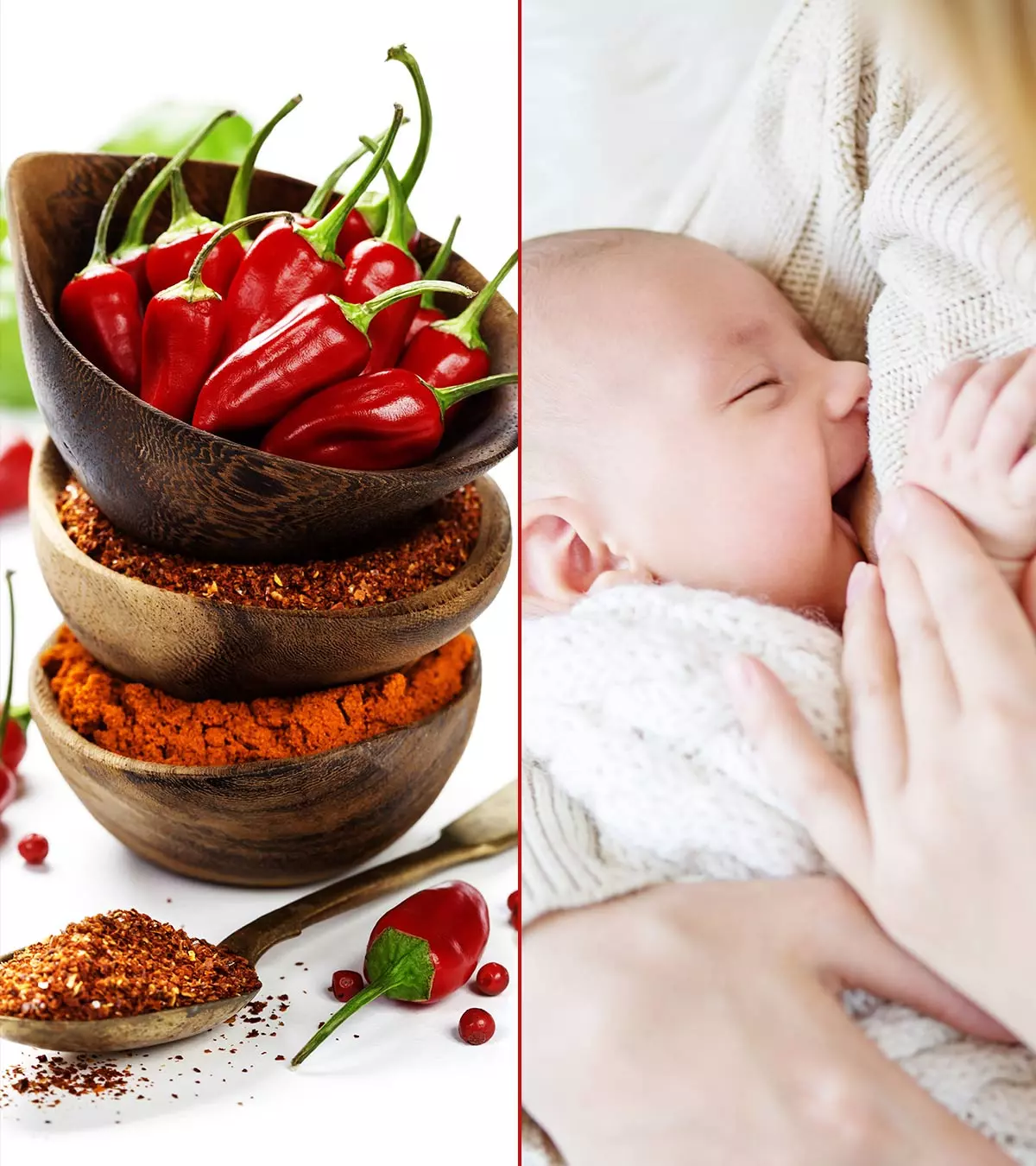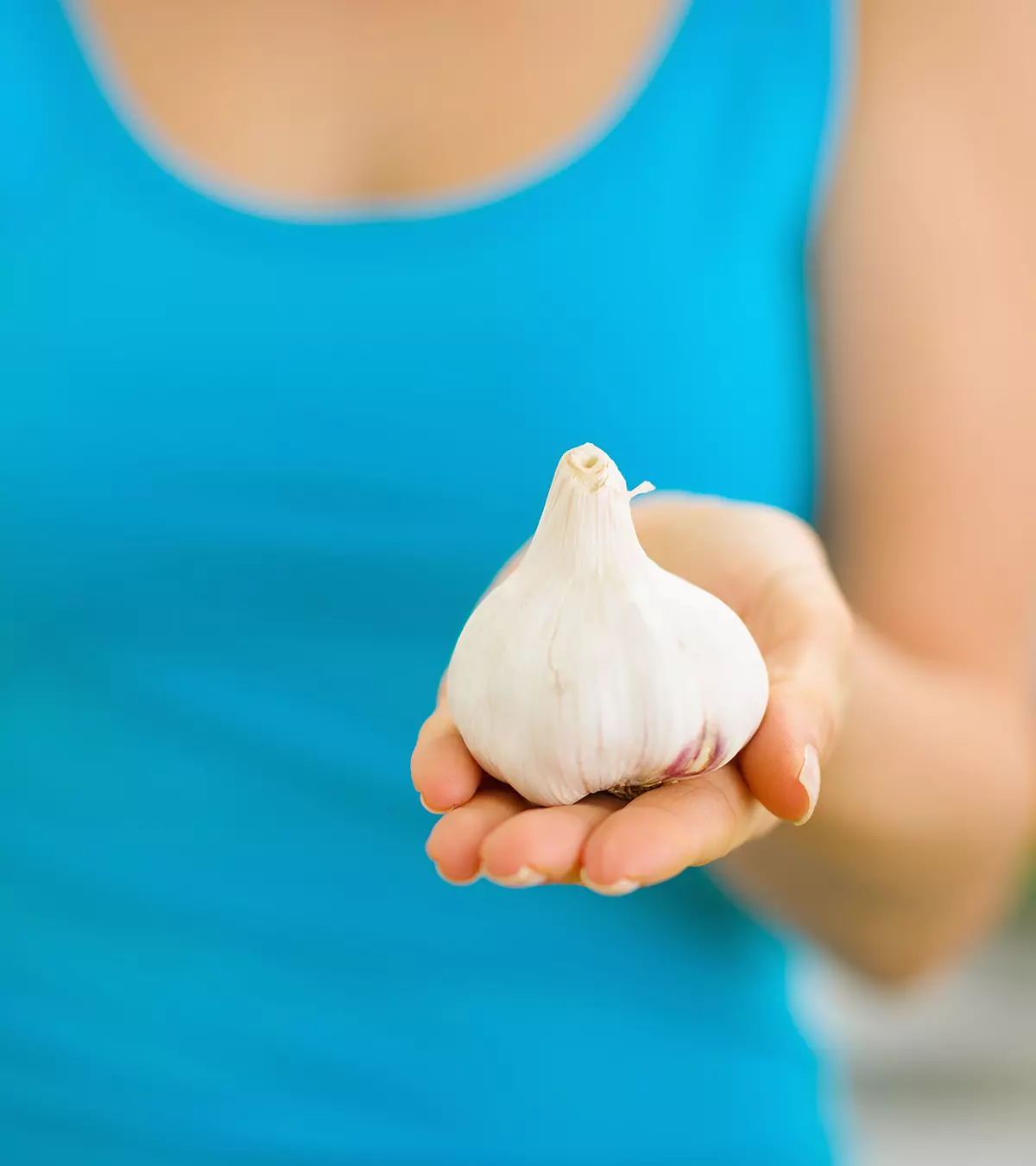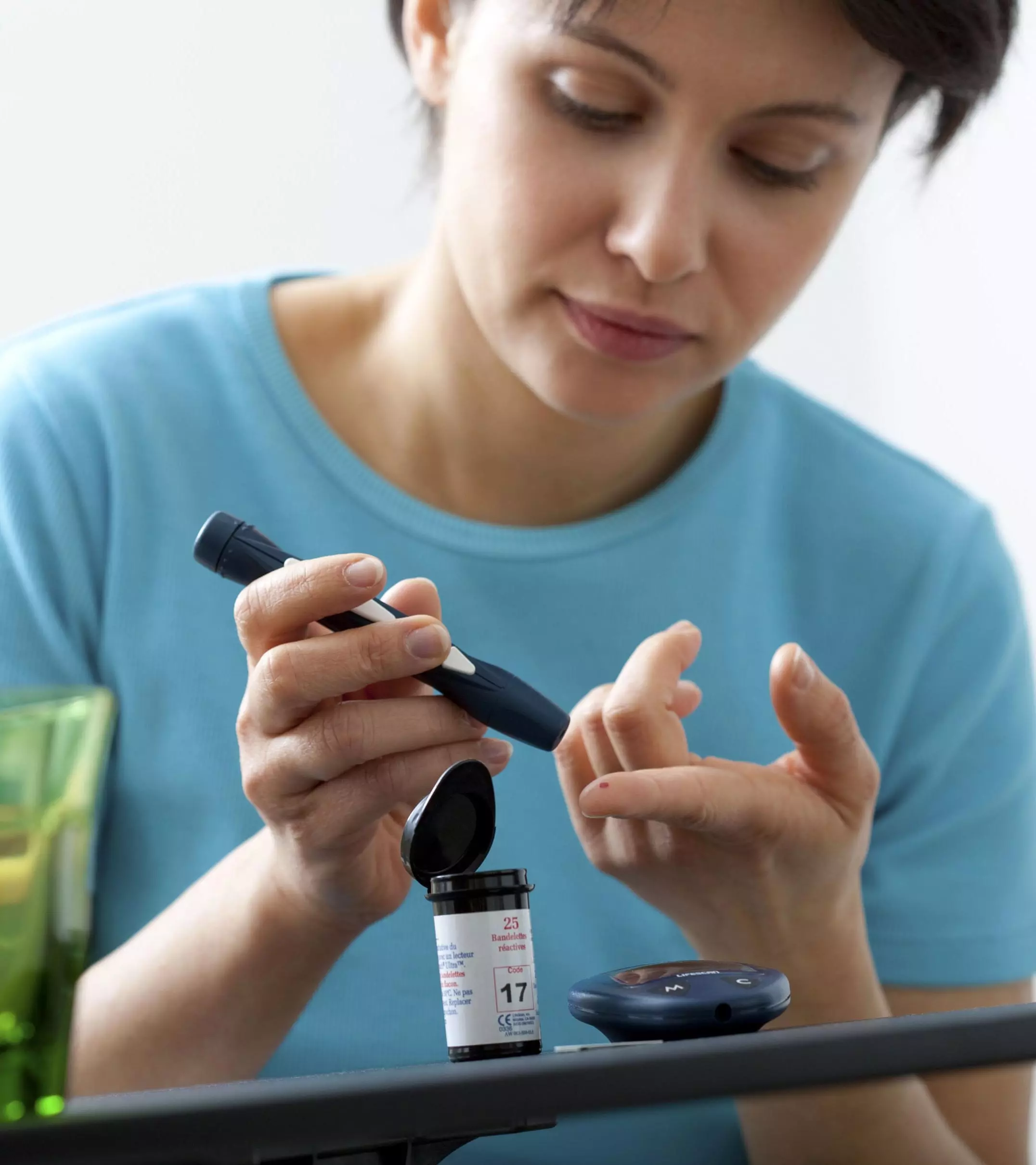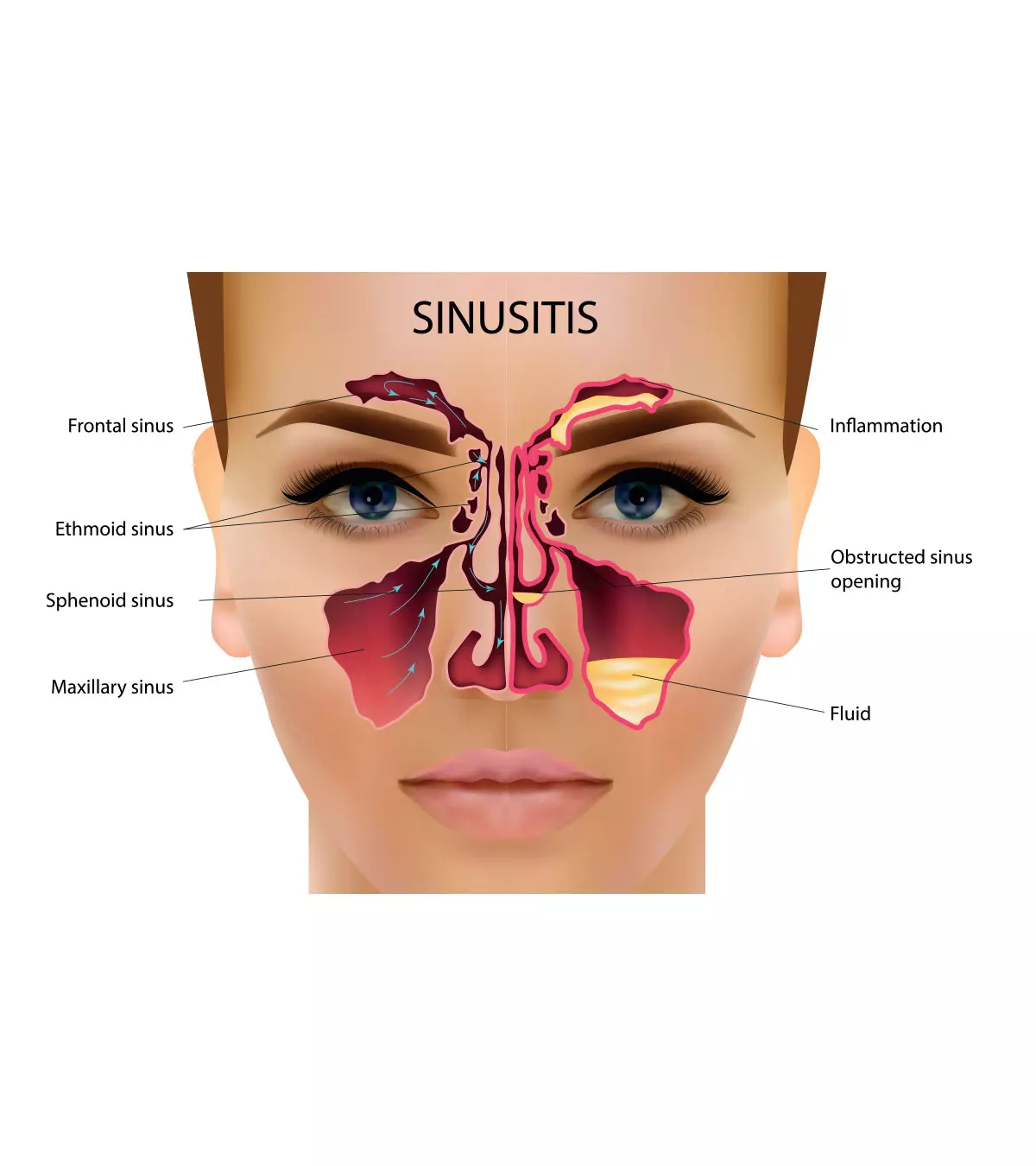
Image: ShutterStock
Grapes are a rich source of antioxidantsiSubstances that prevent or reduce the effects of free radicals and prevent cell damage. and potassiumiA mineral and an electrolyte required by tissues in the body

. Though they are a good source of vitamin C, you may be wondering whether it is safe to consume grapes during breastfeeding (1).
Consuming grapes by a lactating mother is not known to cause any side effects in the baby or even the mother. Additionally, consuming grapes has not been found to have any significant impact on breast milk production or contribute to breastfeeding problems in mothers. Instead, it has several health benefits, such as regulating blood pressure and digestion. However, if you notice symptoms such as stomach aches in your baby, consult your doctor to know whether grapes could cause such aches. You may also take an advisory from your lactation consultant before including grapes in your diet.
Read on as we provide you with more information about consuming grapes while breastfeeding, its health benefits, and possible side effects.
Key Pointers
- Grapes are a highly nutritious food that can be safely consumed by breastfeeding mothers after consulting with a doctor.
- It is important to check for sensitivities in the baby after the mother consumes grapes, as a mother’s diet may affect her baby.
- Grapes are a rich source of antioxidants and potassium, and they are best consumed fresh and unprocessed.
- Moderate consumption of grapes can provide several benefits, such as protection from diabetes, lowered cholesterol, regulated blood pressure, and relief from constipation.
- Consuming grapes during breastfeeding may also help relieve colic in babies.
Can You Eat Grapes While Breastfeeding?

Image: Shutterstock
Grapes are highly nutritious fruits that do not have any known side effects while you are breastfeeding. Consuming grapes while breastfeeding also protects infants from coliciRegular and prolonged fussiness in an otherwise well-fed, well-rested, and healthy baby (2).
Can You Have Grape Juice While Breastfeeding?
You may have grape juice while breastfeeding in moderate quantities. Since breastfeeding can make you extra thirsty, you can enjoy a glass of fresh grape juice and fluids, including water, milk, and herbal teas, which can also be taken. However, ensure that the juice is made from fresh grapes and does not contain added sugars (3). You can also get advice from a nutritionist on how to add juices to your diet when breastfeeding.
Things To Keep In Mind While Eating Grapes While Breastfeeding
Motherhood involves always striving to ensure the best for your little one. It is important to have a healthy and well-balanced meal while you are breastfeeding, as what you eat (or don’t eat) may affect your baby’s health and taste preference. If you are interested in eating grapes during breastfeeding, make sure to keep the following points in mind:
- As with anything you eat or drink while breastfeeding, make sure you speak to your doctor first and only eat grapes once you have confirmation.
- Eating grapes while breastfeeding can sometimes cause stomach upsets in your baby. If you are eating grapes when breastfeeding, make sure you do not eat any other fruit for at least two to three days. It will help you notice any change in your baby’s stool or general behavior. If your baby does develop an upset tummy or pain, and if you have had no other fruit or new food except grapes, you will know for sure if it was caused by eating grapes.

Image: Shutterstock
- If your baby is showing signs of colic, it is important for you to monitor everything that you eat while breastfeeding and note its effect on her. Apply the same rule; when you are eating grapes for the first time while breastfeeding, stay away from eating any other fruits or new foods. It will give you time to note if eating grapes increases your baby’s discomfort or colic.
- Whenever you eat grapes while breastfeeding, make sure you do so in moderation. While eating a few grapes should not be a cause for concern, too much of anything can cause problems, and the same applies to eating grapes.
 Point to consider
Point to considerHealth Benefits Of Eating Grapes
Once your doctor has given you the go-ahead to eat grapes while breastfeeding, start eating them in moderation to enjoy the following maternal health benefits (4):
- Ensures proper hydration
Grapes are water-rich fruits, containing over 80% of water. Eating grapes can ensure proper hydration levels, especially in nursing mothers who require increased fluid intake.
- Protects against cancer
Grapes are loaded with powerful antioxidants that are known as polyphenols
. They help to slow down and even prevent the onset of different types of cancer, including cancer of the mouth, colon, prostate, lungs and even pancreas.
- Protects Against Diabetes
The glycemic indexiA number assigned to different foods to show how quickly and how much they can increase the blood sugar levels number in grapes is low, which helps keep the blood sugar levels in control.
- Lowers Cholesterol
Grapes contain plenty of fiber that makes them a good choice to reduce high cholesterol in the body.
- Regulates Blood Pressure

Image: Shutterstock
Grapes are rich in potassium, which helps keep your blood pressure in check.
- Relieves Constipation
The high water content in grapes helps to keep you hydrated and prevents constipationiA condition in which a person passes stools less than three times a week and may have difficulty removing waste entirely from the rectum , which is a common occurrence during and after pregnancy, especially during the postpartum period when the body is recovering from childbirth.
Catherine Rall, a registered dietitian and nutritionist from Denver, Colorado, opines, “Grapes contain plenty of fiber and water, which can definitely help with constipation. While they may not have a direct laxative effect, they are more effective in preventing constipation than resolving it.”
 Did you know?
Did you know?Frequently Asked Questions
1. Is it safe to eat black grapes while breastfeeding?
Yes, black grapes can be a great breastfeeding-friendly snack option that can be eaten in moderation during lactation, as they are high in antioxidants and can help keep you hydrated.
2. Should I avoid eating grapes if my baby has a grape allergy?
No specific research suggests that you cannot consume grapes if your child has an allergy. If you’re certain your child is allergic to grapes, consult your healthcare provider before consuming them to understand the fruits to avoid while breastfeeding.
3. Is there a recommended time of day to eat grapes while breastfeeding?
The time of the day when you consume the fruit has little significance. All your meals and snacks should be well spaced out to promote digestion. It would be best to visit a nutrition specialist so that they can give you a personalized diet chart to follow when you are breastfeeding, which will prioritize maternal and fetal nutrition.
4. Should I wash grapes before eating them while breastfeeding?
According to the Centers for Disease Control and Prevention, you should wash all your fresh produce before you consume it. It can help protect you from foodborne illnesses and ensures you are not eating physical dirt, germs, pebbles, insects, and other lingering debris (6).
5. What other fruits can I eat when breastfeeding?
Eating grapes as a breastfeeding snack can be beneficial for both you and your baby’s health, as they offer optimal nutrition. The fruit is known to lower cholesterol, regulate blood pressure, and relieve constipation in mothers. In most cases, consuming grapes in moderation does not cause any side effects in infants. On the contrary, they are known to protect from colic. However, if you notice any discomfort in your baby after breastfeeding, consult your doctor. Also, monitor your diet for a few days to check whether grapes or other food causes discomfort.
Infographic: Nutritional Benefits Of Eating Grapes When Breastfeeding
Grapes are a natural source of various nutrients. When taken in moderation, it can be a good addition to your nursing diet. The infographic below summarizes the health benefits you may get by including grapes in your breastfeeding diet. Keep it handy and share it with other lactating mothers too!
Some thing wrong with infographic shortcode. please verify shortcode syntax
Illustration: Can You Eat Grapes While Breastfeeding?

Image: Dall·E/MomJunction Design Team
References
- Grapes red or green (European type such as Thompson seedless) raw
https://fdc.nal.usda.gov/fdc-app.html#/food-details/174683/nutrients - Does maternal diet affect infantile colic?
https://pubmed.ncbi.nlm.nih.gov/26523529/ - Breastfeeding Nutrition.
https://americanpregnancy.org/healthy-pregnancy/breastfeeding/nutrition-during-breastfeeding/ - 10 Health Benefits of Grapes.
https://health.clevelandclinic.org/health-benefits-of-grapes - Alimohammad Izadpanah et al.; (2019); Effect of grape seed extract ointment on cesarean section wound healing: A double-blind randomized controlled clinical trial.
https://pubmed.ncbi.nlm.nih.gov/31003677/ - How important is it to wash fruits and vegetables before eating?
https://wexnermedical.osu.edu/blog/washing-fruits-vegetables - Top 10 Superfoods For Breastfeeding Moms.
https://news.sanfordhealth.org/womens/top-10-breastfeeding-superfoods/ - Eat Healthy While Breastfeeding: Quick Tips.
https://odphp.health.gov/myhealthfinder/pregnancy/nutrition-and-physical-activity/eat-healthy-while-breastfeeding-quick-tips
Community Experiences
Join the conversation and become a part of our nurturing community! Share your stories, experiences, and insights to connect with fellow parents.
Read full bio of Mindy Cockeram
- Catherine Rall is a registered dietitian with more than five years of experience in the nutrition industry. She holds a bachelor’s degree in health science and dietetics from the University of Rhode Island and a business management degree from The American College of Greece.
 Catherine Rall is a registered dietitian with more than five years of experience in the nutrition industry. She holds a bachelor’s degree in health science and dietetics from the University of Rhode Island and a business management degree from The American College of Greece.
Catherine Rall is a registered dietitian with more than five years of experience in the nutrition industry. She holds a bachelor’s degree in health science and dietetics from the University of Rhode Island and a business management degree from The American College of Greece.
Read full bio of Jessica Albert
Read full bio of Swati Patwal
Read full bio of Shinta Liz Sunny


















